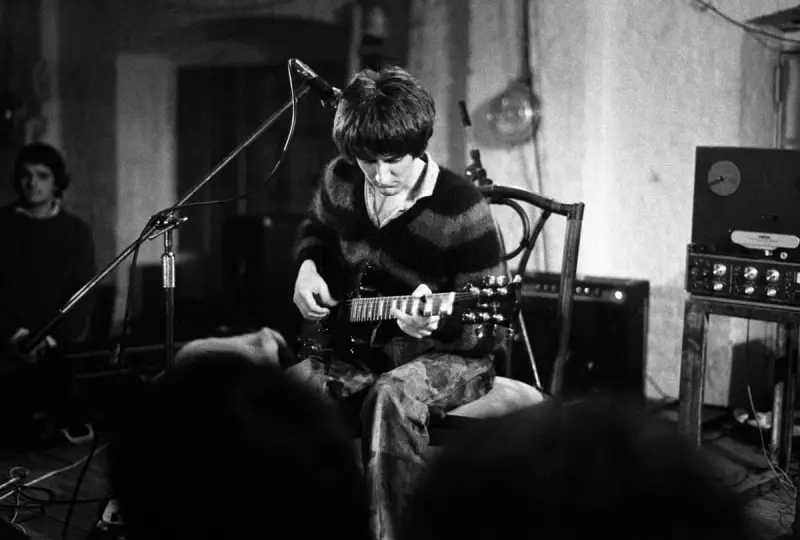
The Unexpected Durability of a Fragile Masterpiece
Emerging from a backdrop of personal turmoil and creative disaster, The Durutti Column's debut album, 'The Return of the Durutti Column', seemed destined for obscurity. Yet, over four decades later, this delicate and experimental work is receiving a comprehensive deluxe reissue, a testament to its enduring and surprising influence far beyond the post-punk landscape of 1980.
A Troubled Origin Story
The album's creation was anything but straightforward. The band bearing its name had already split acrimoniously before recording was due to begin. The project's guitarist and creative force, Vini Reilly, was in the grip of a severe depression, so debilitating that there were 12 separate attempts to section him under the Mental Health Act in 1979. Convinced Reilly was 'going to die', Factory Records co-founder Tony Wilson intervened, purchasing him a new guitar and arranging studio time with the label's maverick producer, Martin Hannett.
The initial sessions were a failure. Hannett focused obsessively on his cutting-edge electronic equipment, largely ignoring Reilly. The guitarist, feeling sidelined, played sporadically before eventually storming out, declaring, 'I'm fucking sick of this.' He did not return. Unaware an album was being assembled, Reilly was 'mortified' when Hannett presented him with the finished product and he 'absolutely hated' what he heard.
An Album Out of Time
Upon its release in 1980, the music confounded critics. It bore no resemblance to the band's earlier post-punk contributions or the prevailing musical trends. Reviewers struggled for comparisons, namechecking the atmospheric jazz of the ECM label and the guitar work of Mike Oldfield and Jerry Garcia from the Grateful Dead—references that held little weight in the post-punk world. Even a positive review in the NME suggested listeners might dismiss it as 'hippy noodling'.
It should have been a forgotten Factory Records curio. Instead, 45 years on, the album is being celebrated with a deluxe edition. This new version includes a plethora of lo-fi home demos and live recordings from performances in Leeds and Brussels, which capture Reilly's fraught early attempts to translate the material to the stage. One recording perfectly encapsulates this tension, featuring Reilly telling an audience, 'You're a very nice audience,' before immediately retracting, 'You're a fucking awful audience.'
A Lasting Legacy and Influence
Despite its fragile nature—one critic beautifully described Reilly's dextrous, echoing guitar lines as sounding like 'frost on a windowpane'—the music of The Durutti Column has proven to be surprisingly robust. Its echoes can be found in the modern cultural landscape, featuring on the soundtracks to the hit TV show 'The Bear' and the video game 'Grand Theft Auto'. Its influence is acknowledged by a diverse range of artists, from the Red Hot Chili Peppers to Frank Ocean. More recently, an interpolation of their 1998 track 'Sing to Me' lent a poignant, very English melancholy to Blood Orange's wonderful single 'The Field'.
Listening today, the reasons for its longevity are clear. What worked against it in 1980—its total distance from the contemporary scene—ultimately became its greatest strength. There is little beyond the primitive rhythm tracks to tie it to a specific era, meaning it has not dated. Furthermore, the unique circumstances of its creation, born from experimentation rather than a conscious effort to make a commercial album, forged its distinctly intimate and beguiling atmosphere.
The Durutti Column's catalogue would later expand to encompass sampling and flamenco, but the blueprint was set here. From the opening notes of 'Sketch for Summer', with its languid, echoing tones perfectly evoking a sun-dappled July afternoon, the listener is drawn into a secret world of private feelings. Tracks like 'Requiem for a Father', shrouded in reverb like a fading memory, possess an emotional rawness and power to move that transcends technical skill. It is an exquisite album its author never intended anyone to hear, yet one that new listeners will doubtless discover and fall in love with for decades to come.





